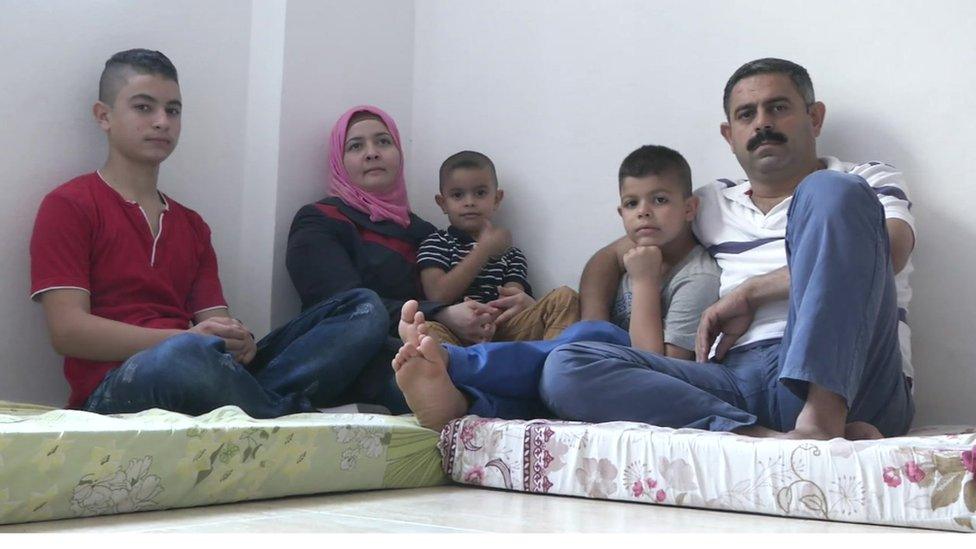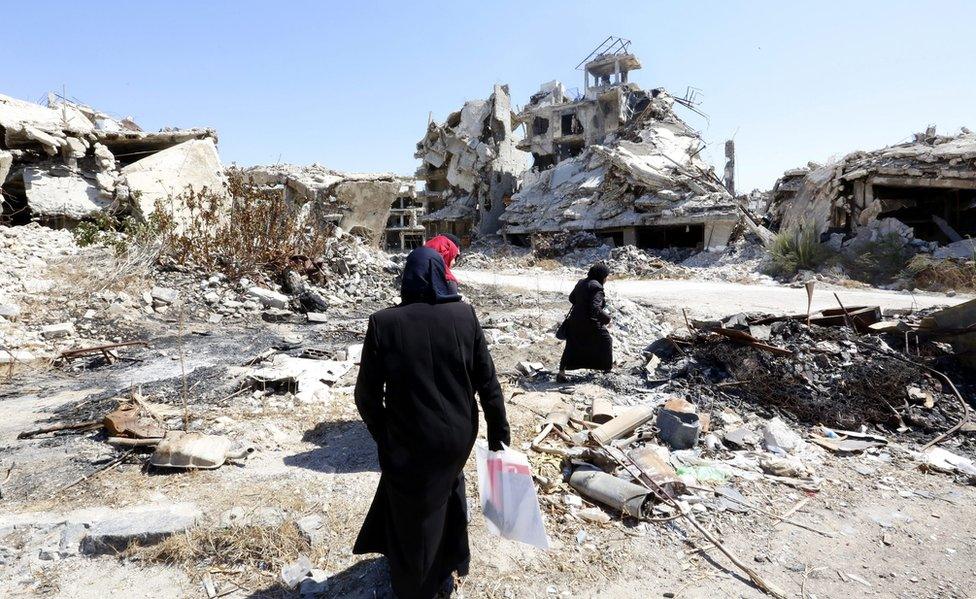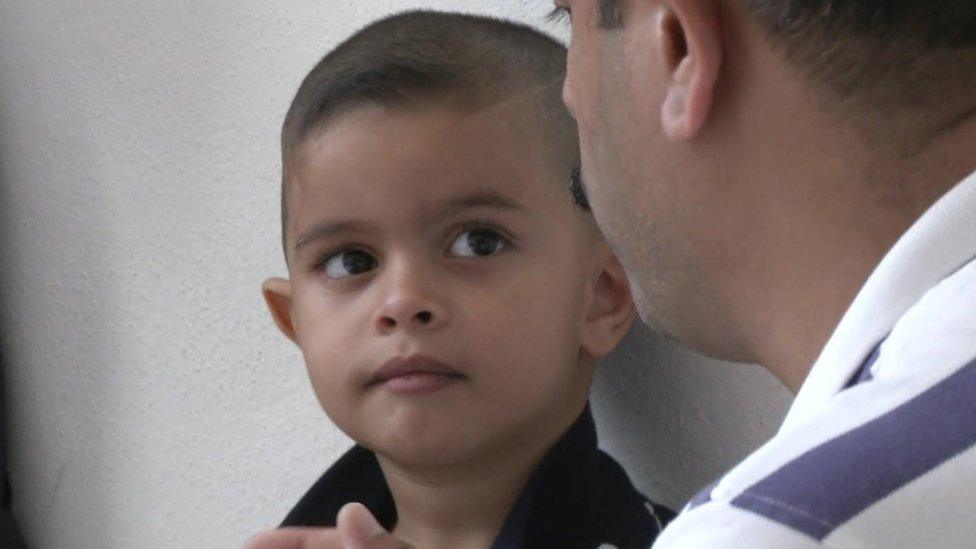Syrian refugees: 'We want to start our new lives in UK'
- Published

Mohammad Ameen says his family hoped to come to the UK - but instead remain in Lebanon
A Syrian refugee family were offered the chance of a new life in Britain - but a year later, they remain homeless in Lebanon. They told the BBC about how their dreams have turned to frustration.
Mohammad Ameen used to run a computer repair shop in Homs. He had his own home and car. He says he had a peaceful life.
But like millions of others, he was caught up in the war in Syria.
After being held in a regime jail for over a year, he fled to Lebanon with his family in August 2012
Syrian refugees in Lebanon are not allowed to work, and there are no formal settlements for them. Instead, they must find their own accommodation, and live on the small stipend the United Nations High Commissioner For Refugees (UNHCR) provides.
He and his family moved from rented flat to rented flat, often having to pay expensive rent, and gradually selling all their belongings.
Then last year, they were given new hope.
They had been selected - through the UNHCR - to go to the UK as part of the Vulnerable Persons Relocation Scheme.
Cancelled flights
"We were so happy when we learnt we will be able to travel to the UK," he says.
"All of us got so excited. We started picturing how life would be there - with a big furnished house and not being banned from going to work. We were so happy. "
He and his family went through all the medical and security tests required - a process that takes months.
But the night before their flight last September, he got a call - their seats on the plane had been cancelled.
"I asked why? They said it's because your name matches a name on a wanted list. But this isn't possible. I'm here, I'm registered, I'm not going anywhere. They can come and arrest me if they want. It wasn't me on that list - it's a mistaken identity."
He adds: "The cancellation was a major blow to us."
Mohammad says Lebanese security admitted their administrative error, and he then had to go through the UN medical and security vetting process again.
A second date was scheduled for August 2016 for a flight to the UK.
However, the flight was cancelled for a second time.

Homs, Syria's third city, has been subjected to years of siege and bombardment
Mohammad's wife Ahad explained how the family took the news.
"When it was cancelled for a second time, Omar our youngest took it particularly hard," she said.
"He wants a new bike. All he does is dream about riding a new bike. It's hard for us. But for them, it's awful, because they feel like their lives are waiting to start."
She continued: "It's been even more difficult because when we got on to the scheme the first time, we stopped receiving aid because we were meant to travel. It was never restarted. That money keeps us alive."
So now Mohammad and his family have been living for over a year without the UN stipend they were getting, waiting for word on whether they'll get to start their new lives.
Mohammad feels that while many refugees try and make their own way to the UK, he's been playing by the rules - and his family has been let down.
'Range of reasons'
The BBC asked repeatedly for comment from the British embassy in Beirut and from the Home Office in the UK.
They sent us this statement.
"The UK has been at the forefront of the international response to the humanitarian crisis in Syria.
"We have committed to resettling 20,000 Syrian refugees through our Vulnerable Persons Resettlement (VPR) scheme over the course of this parliament and are on track to meet this landmark commitment. So far, we have provided refuge to more than 2,800 people in need of protection.
"Not all referrals from the UNHCR lead to resettlement in the UK. This is for a range of reasons, including refugees choosing to withdraw and problems obtaining exit permissions from their current country of residence.
"Furthermore the Home Office retains the right to reject individuals on security, war crimes or other grounds.
"The decision whether or not to grant exit permission is a matter for the host country. Where an individual is denied exit permission we will work with the host government and the Foreign and Commonwealth Office to establish the reasons, and resolve any issues if we are able."

Omar, 4, is hoping to get a new bike if the family does finally move to the UK
It may be a decision for the host country, but Mohammad feels he's been abandoned by a system which was meant to help him. He doesn't understand why the UK didn't make more of an effort to get him cleared.
Matthew Saltmarsh, from the UNHCR, says Lebanese security will not explain what the hold-up has been, although he admits there was an issue with the family's food allowance.
But he was supportive of UK efforts.
"The UK has been very co-operative," he said, "and they're very organised when it comes to relocating refugees. They've pledged to take 20,000 over the next five years and they are on track to meet that pledge."
The British government has faced criticism for accepting a smaller number of refugees on their scheme than other developed nations, external. Canada and Germany have pledged to take far more, although France is well behind.
For Mohammad, the delays mean his children have been out of school even longer than they otherwise would.
"The one next to you still can't write his name," he says, pointing to his 10-year-old son.
"They don't teach them here. I just want to go to the UK for my children."